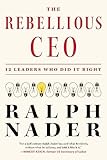In the United States today, in this forbidding 21st century, everyday “life” is an anxiety-driven race to nowhere, a stress-filled sprint on the work-and-spend treadmill. Ultimately, one may fall off–a casualty in the globalized battle for ever-increasing profits—thereby descending into the growing ranks of the “dis-employed” (i.e., those now-redundant “surplus-persons” on the receiving end of automation and offshoring).
Not unlike the suffering of confined or abused animals—which may exhibit enlarged adrenal glands and obesity–real human beings struggle to adapt to the chronic stress of either trying to “hold down a job”—under ever-increasing demands—or trying to pay bills after being terminated. Engaging in an ongoing (and ultimately futile?) struggle to cope or adjust, many become addicted to food, drink, drugs (“medications”?), TV, shopping, the Internet or even headphones.
Yet who, one might ask, thrives under such brutalizing conditions—in which one is treated (and expected to behave) like an object, like a thing which satisfies all standards for efficiency and productivity–calibrated to the precise calculation of keystrokes? An object, expected to vocalize a carefully modulated, synthetic cheerfulness (“customer service”), expected to submit to the inexorable requirements of the real machines to which (s)he is symbiotically dependent? Brutalizing conditions, in which automaton-like “adaptability” and stunted sensibility are notably advantageous deficiencies? Fifty years ago, radical sociologist C. Wright Mills asked whether “there will come to prevail, or even flourish, what may be called the Cheerful Robot?” ((“In our own time [1959!], must we not face the possibility that the human mind as a social fact might be deteriorating in quality and cultural level, and yet not many would notice it because of the overwhelming accumulation of technological gadgets?” C. Wright Mills, The Sociological Imagination, Oxford University Press, p. 171, 175.)) If his dire prophecy has since materialized, it can only be attributed to the triumph of all-encompassing “market-values,” in which the most “efficient” and “productive” employees have been harnessed to the inflexible machine-logic of the Computer Age.
From autonomous, free-thinking individuals to persons entirely “re-formed” into trained appendages of the machines and gadgets which dominate the automated workplace. The dreadful outcome, in human terms? De-humanization: the atrophy of mature, emotional development, the blockage of expressive spontaneity. Maximal efficiency equals the machine-like predictability of an affectless, calculating, “technomorphic” mentality. Within such a milieu, in which human experience is mechanized and commodified, spontaneous human expressivity becomes increasingly pathologized. Forty years ago, the psychologist Lewis Yablonsky had already noted: “Being open in speech; being unashamed of one’s body; relating to nature; hugging, touching, feeling and making love to other people; refusing to serve in the army and kill; and becoming less dependent on machines are generally considered ‘disturbed behavior’ by a society of robopaths.” ((Lewis Yablonsky, Robopaths: People as Machines, Penguin, 1972, p. 43.))
Biophilia, an affinity and reverence for living things, has been emphasized as an innate human predisposition by biologists, as well as by countless artists and philosophers. ((Edward O. Wilson, Biophilia, Harvard University Press, 1984. I might add that the radical psychoanalyst Erich Fromm first used the term, and outlined the optimal conditions conducive to such an attitude, in several books written in the Sixties and Seventies.)) Drawn to contact with living nature, healthy human beings in turn avoid the lifeless, automated, over-organized techno-industrial system (which Lewis Mumford termed the “Megamachine”). One’s own direct, unmediated experience—of sea and sky, of insouciant forest creatures, of birds soaring and whirling above—can only enrich one’s own withered spontaneity and expressive aliveness. Of course, human intimacy—the shared affections of informal, cooperative living—may also flourish, once people have liberated themselves (as much as possible) from the dominating impersonality and hierarchical subordination of the hi-tech workplace.










